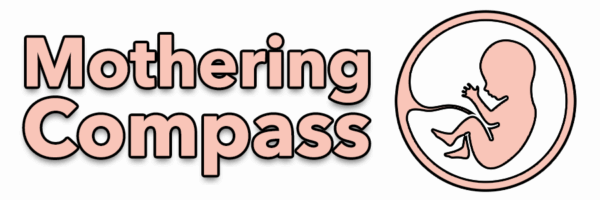Empowering Parents: Building Confidence Through Connection and Clarity
Parenting isn’t a job—it’s a lifelong role filled with growth, uncertainty, and transformation. Empowering parents doesn’t mean giving them all the answers; it means equipping them with confidence to ask the right questions, trust their instincts, and respond to their children with clarity, compassion, and purpose.

In a world overflowing with information, opinions, and parenting “hacks,” real empowerment comes from cutting through the noise and reconnecting to what matters most—relationships, intuition, and shared humanity. This article explores what empowerment looks like in the modern parenting journey and how parents can reclaim their inner authority while raising resilient, secure children.
The Modern Parenting Landscape
Today’s parents face challenges that previous generations could never have imagined: digital overload, shifting social norms, economic instability, and a never-ending stream of comparison via social media. These pressures can leave many parents doubting themselves, chasing unattainable ideals, or feeling isolated.
Empowerment in this context means giving parents tools not just to survive the noise, but to rise above it. When parents feel empowered, they become more attuned, less reactive, and more grounded in their values—even when circumstances are chaotic.
Redefining Authority: From Control to Connection
True empowerment begins when parents let go of outdated models of control-based parenting. Children don’t need perfection—they need presence. Authoritarian approaches that rely on punishment and obedience often breed fear or resentment, while permissiveness can leave children anxious or unsure of boundaries.
An empowered parent knows their voice matters, but so does their child’s. They listen without fear, guide with firmness and empathy, and understand discipline as teaching, not punishment. It’s not about being the boss—it’s about being the leader.
Connection-based parenting empowers both the parent and the child. Through open communication, emotional safety, and consistent boundaries, families thrive. This doesn’t mean parenting is easy—but it does mean it’s intentional.
Trusting Yourself Again
Many parents have been conditioned to doubt their instincts. Maybe it was criticism from a family member, a traumatic upbringing, or an overwhelming feed of conflicting online advice. Reclaiming your parental intuition is an act of empowerment.
You know your child better than any book or algorithm. You understand their rhythms, fears, and joys. When you make decisions from a place of mindful awareness—not guilt or comparison—you model confidence and courage for your children.
Empowered parenting includes making mistakes and repairing them. It’s knowing when to hold firm and when to bend. It’s realizing that growth happens when you stay open—not when you try to be perfect.
It’s important that you have your sense of self, and balance when you’re a parent – learn more directly with our article about single motherhood…
Boundaries Aren’t Just for Kids
Empowerment also means having the confidence to say “no” to outside pressure and protect the energy of your family. Whether it’s refusing to over-schedule, pushing back on unsolicited advice, or choosing a different path than others around you, setting boundaries is a vital act of parental leadership.
Parents who model healthy boundaries show their children how to respect their own space, advocate for themselves, and value their time. This applies both within the home and outside of it.
If you’re exhausted, burned out, or overwhelmed—your parenting will reflect that. Empowered parents build routines that include rest, connection, and realistic expectations. The goal isn’t balance—it’s sustainability.
Community Is Power
Empowerment is not a solo endeavor. One of the most radical things a parent can do is seek connection. Whether it’s a mom group, an online forum, a trusted friend, or a parenting coach—being witnessed and supported changes everything.
When you share your struggles honestly, you invite others to do the same. Shame diminishes. Encouragement grows. Solutions emerge organically.
There’s no badge for doing it all alone. Empowered parenting honors vulnerability and recognizes that strong families are often supported by strong networks—even if they’re small and imperfect.
Encouraging Self-Expression in Your Children
Another dimension of empowerment lies in how you raise your children to see themselves. Children who are allowed to express emotion, ask questions, make age-appropriate choices, and contribute meaningfully to family life are more likely to grow into secure, confident adults.
This doesn’t mean giving kids free rein. Rather, it means guiding them with awareness and respecting their developing autonomy. Empowering your child doesn’t threaten your role—it strengthens it.
When a child sees that their voice matters, they also learn that yours does too.
Language That Lifts
Empowered parenting is rooted in how we speak—especially in moments of stress. Shifting from reactive language to intentional phrasing can transform daily interactions.
Examples:
- Instead of “Stop crying,” try “I’m here. Let’s breathe together.”
- Rather than “Why did you do that?” ask “What were you feeling when that happened?”
- Replace “Because I said so” with “Here’s why this matters right now.”
These shifts don’t mean you’re soft—they mean you’re strategic. Language shapes mindset. Your words can validate, redirect, and elevate at the same time.
Navigating Guilt and Comparison
Modern parents often grapple with guilt: Am I doing enough? Am I ruining them? Why can’t I be more like so-and-so?
Empowerment invites you to release the myth of the ideal parent. You don’t need to be like anyone else. You just need to be attuned to your child, in your circumstances, with your values.
Comparison is the thief of joy—and the thief of confidence. If you must compare, do it gently. Use it to inspire, not to criticize yourself.
Progress over perfection. Presence over performance.
Advice for single moms is another article that goes a little deeper…
Raising Empowered Children Starts With You
Perhaps the most powerful outcome of empowered parenting is raising empowered children. When children are raised in homes where mistakes are welcome, emotions are safe, and boundaries are clear, they develop emotional intelligence, resilience, and self-respect.
They learn to lead—not from dominance, but from understanding. They mirror the tone you set, and they internalize the lessons you teach not just through words, but through your daily behavior.
Empowered parents raise conscious citizens. And that impact ripples far beyond the home.
If you enjoyed this empowerment article, we suggest you continue your personal research at EmpoweringParents.com.
Final Reflection
Empowering parents is not about a style—it’s a mindset. It’s about turning down the volume of external chaos and turning up the frequency of connection, clarity, and courage. Every decision you make with intention, every moment you meet your child with compassion, and every time you forgive yourself for not being perfect—you are building something extraordinary.
You are not alone, and you are more capable than you know. The world doesn’t need more perfect parents. It needs more empowered ones.
